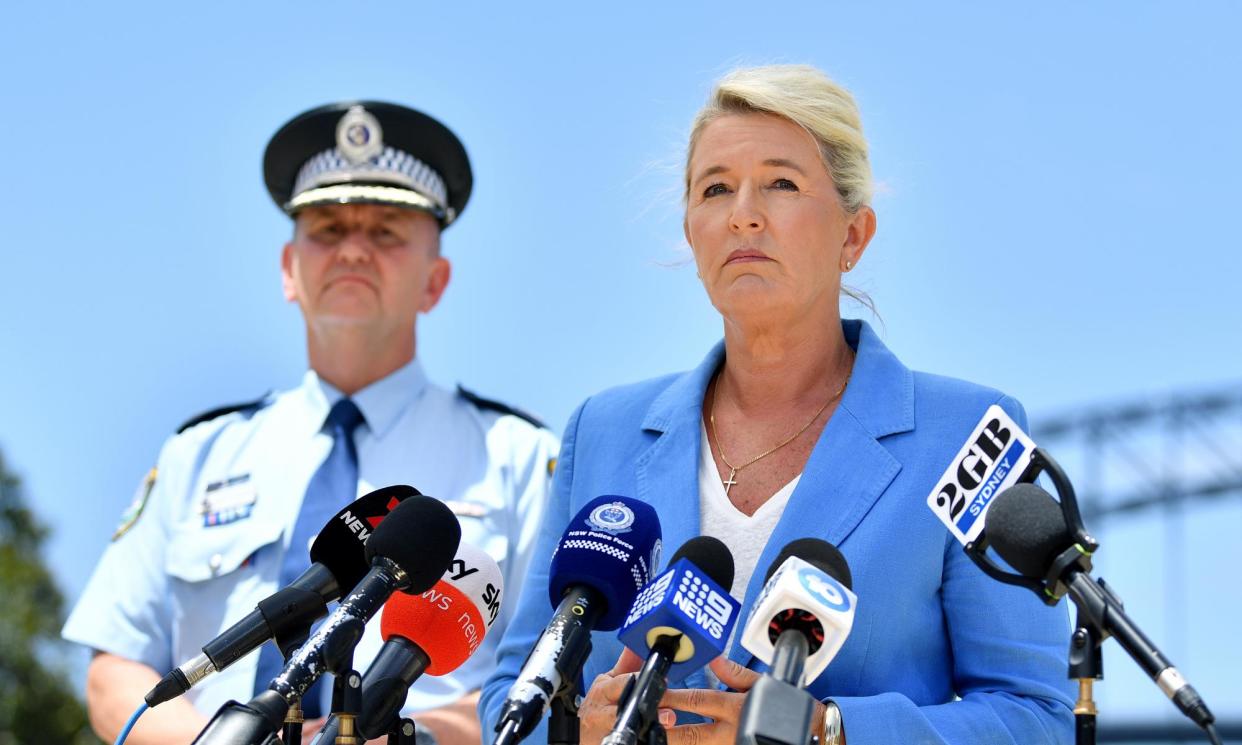Sydney university stabbing: teenage boy who allegedly attacked student was arrested last year, minister says

The NSW police minister, Yasmin Catley, says the 14-year-old boy who allegedly stabbed a Sydney university student was previously arrested over a separate incident last year, with the charges later dismissed.
NSW police are investigating whether the alleged attack at the University of Sydney has extremist links and believe the boy may have been influenced by a “salad bar” of mixed ideologies, while parents have been warned to be vigilant about the content young people are viewing online.
Catley told ABC News Breakfast the charges against the boy laid last year over a separate incident were dropped in court.
“He had been attending one of the programs that the department of community and justice run out in New South Wales. As I understand it, he was engaging in that program,” Catley said.
Catley said it was believed the alleged attack was random and the boy was acting alone and not in a “network”.
Police confirmed on Tuesday they were investigating potential extremist links, including white supremacy, but they had not identified a specific ideology, which is required before an incident can be designated as a terrorist act.
“[The police] are taking it very, very seriously,” Catley said.
It is alleged the boy stabbed the 22-year-old in the neck with a kitchen knife at the university campus and that he was dressed in a camouflage military uniform.
The man was taken to hospital in a serious but stable condition and has since been released.
Catley said the 14-year-old boy remains in hospital, where he is undergoing a mental health assessment.
Police said they have ruled out religion as a motivating factor behind the alleged attack, and were investigating whether access to extreme violent content online may have radicalised the teenage boy.
Catley said greater pressure needed to be placed on social media companies to remove harmful content.
“This toxic sewer that our children are seeing on a regular basis, we have to stop it,” she said.
“I say this to parents, to carers, if you’re a coach of a kid or their teacher: if you see behaviour that changes, then say something. Come forward and let us know. Because we cannot help if we do not know.”
Speaking generally, the home affairs minister, Clare O’Neil, told Seven’s Sunrise program that social media and technology was partially to blame for the “disturbing” radicalisation of young people.
“We are seeing some really concerning trends in the presentation of terrorism in our country, and in fact these are global trends,” she said.
“We’ve got some really concerning things going on here that we need to get a handle on.”
Responding to reports the teen had been in a deradicalisation program, O’Neil said the commonwealth funds the programs, but states are responsible for running them, as different jurisdictions face different challenges.
“It’s really important that we do stay focused on how effective those programs are … I’m confident these programs do have some effect, but we need to stay really focused on making sure that we’re attacking the problem with everything we’ve got,” O’Neil said.
– with AAP

 Yahoo News
Yahoo News 
